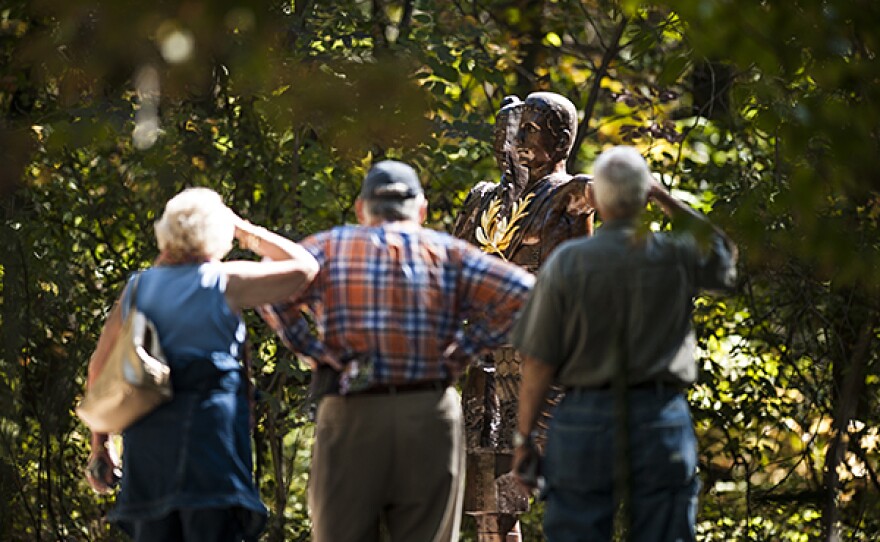The 300-acre Overland Park Arboretum and Botanical Gardens garnered national attention in recent months over a bronze statue titled "Accept or Reject." The work, by Chinese artist Yu Chang, depicts a headless, bare-breasted woman holding a camera, pointing it at herself.
On October 26, a grand jury was summoned in Johnson County to determine if the sculpture violated the Kansas obscenity law, which is based on standards established by the U.S. Supreme Court. The 15-member jury deliberated less than a day and decided not to issue an indictment. The jury issued this statement:
"We sat for a day and viewed the photographs of the statue. We reviewed the Kansas law and found that the sculpture in question did not meet the legal definition of obscenity."
Sexting or not?
Phillip Cosby of the American Family Association of Kansas and Missouri took up the petition drive after a Stilwell resident was unable to convince Overland Park officials with her petition request that the statute was inappropriate and should be moved.
After the grand jury's decision in October, Cosby told the Kansas City Star that nudity wasn't the issue.
It’s that demonstration of sexting that most troubles the American Family Association.
“Our concern is not about nudity,” he said. “It’s what’s being done by the act of sexting.”
He says that is an illegal and potentially harmful activity if engaged in by minors.
According to the Wikipedia definition of sexting, "it's the act of sending explicit messages or photographs, primarily between mobile phones."
In a commentary, Kansas City Star's Mary Sanchez made this argument:
The American Family Association of Kansas and Missouri needs to ask around a bit. Talk to the teenagers they are so concerned about protecting. You don’t sext from a camera. People do it with a cell phone. And teenagers aren’t influenced to take part by a bronze statue tucked away on a winding path in a remote portion of Johnson County.
One of the largest surveys to look at the prevalence of sexting among minors was published in the journal Pediatrics in December 2011. According to The New York Times, the survey found that "one in 10 children ages 10 to 17 has used a cellphone to send or receive sexually suggestive images, but only 1 in 100 has sent images considered graphic enough to violate child pornography laws." The research suggests that sexting "is actually more common among young adults than children."
Nancy Baym, a professor of communication studies at the University of Kansas, and author of “Personal Connections in the Digital Age" was quoted in the NYT article:
But Dr. Baym, who was not involved in the study, said it was important that the research documented “that a considerable percentage of texting is not problematic, but an extension of the kinds of flirting and relationship-maintaining behavior that goes on in consensual teen relationships and stays within those relationships.”





















